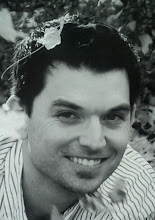This topic was chosen by a reader:
"How do you recover following a poor shot or a bad round?"
What is the difference between a great golfer and a good golfer? Or an average golfer and a good golfer? What is the difference between a PGA Tour winner and a journeyman who has never won? This topic is debatable and there are many factors to consider when comparing players. But the best answer to these questions is this: The best players analyze past results with the intention to improve future results.
Warren Buffet, the great investor, once said, "The one thing I've learned from the past is that we don't learn from the past". He was speaking in terms of financial investing, but the saying could easily be used in terms of golf. So often we see players who hit balls on the range with no regard for improving. They may hit 200 7-irons, but it's aimless. These players often wonder why they are not seeing the positive results that their efforts should be yielding. But their time is spent in vain because there is no focus. Below, I will describe some ways to improve your thought process in an attempt to dampen the effects of both bad and GOOD shots and rounds.
Most players who struggle with inconsistency ask the wrong question following a poor shot or a bad round. The question they ask is "What?". "What happened?", "what was the result?", "what went wrong?", etc. The problem with asking themselves "what?" is that it is not a constructive question. Asking "what" will not help you improve on future results because it keeps you in the past. And the shot is already done or the round is already over.
From here on out, every shot you ever hit should be followed with one question: "Why?". "Why?" is constructive. "Why?" returns the player to a place where learning can take place and a foundation can be formed. And from this foundation, improvements can be made. When I say "every" shot should be followed by "why?", I mean it - both good and bad shots. Asking "why" after a good shot can help the player engrain the parts of the swing that worked. After a poor shot, "why" helps to identify problem areas in the swing or mental approach that can be improved upon. You should feel like a 5 year old following a shot, "why is that?, why is THAT?...". Hitting shots with a purpose in mind will allow the golfer to improve no matter at what level they are current playing.
This approach allow the player time to analyze the shot: why it went right, why it went wrong, lessons learned, etc. And it also allows the mind to reset prior to the next shot. In medicine, the first action of assessing a trauma patient is to "stop the bleeding". If a patient is bleeding heavily, it really doesn't matter if they are breathing or not because without blood, life is unsustainable (breathing can be done for the patient if need be). The same principle is true in golf: "stop the bleeding". Following a bad shot, ask "why?", analyze it, and move on. Tiger does this better than anyone. He may get angry after hitting a poor shot, but he never allows a poor shot to influence the next shot. When I played in college and professionally, I did not hit two poor shots in a row or bogey two holes in a row (that was the goal, at least). Do not allow yourself to hit two poor shots in row. If that means playing a shot that is not particularly called for on that hole but you know you will put a confident swing on it, do it. In the long run, this approach will yield results.
1) Learn from the past
2) Ask "why did that happen?" after EVERY shot and round
3) Analyze the result
4) Move on
Thursday, March 11, 2010
Subscribe to:
Post Comments (Atom)


Well said Nathan...
ReplyDeleteWhen I emailed you I was reffering to a recent round I played with my friends. I sank a uphill, right to left, 30 ft putt. I was so pumped, my next 5 holes maybe I had to much adrenalin in my veins and was pulling shots well left of the target and thats what I do when I over swing. 3 things I try to remember in my shot routine are 1. Head still 2. Deep breath, relax. 3. Follow through to the target. They may not work for everyone but they help me.
It's a wonderful feeling to make a long putt. But after the celebration (and by all means, celebrate), you must collect yourself and focus on the task at hand. If this is in the middle of the round, the task at hand will be to hit your next tee shot. If your mind is on anything else, you will more than likely receive a poor outcome from the next shot. By the time you tee up the ball on the next hole, intentionally focus on the task at hand and do not allow anything or anyone to deter you from that task. Watch the pros: when they hit a good shot, they celebrate. But the next time the camera goes to them, it looks as if nothing ever happened.
ReplyDeleteBy the way, your preshot routine is fine if it works for you. But the day you play a round without thinking of swing-keys, you'll frame your scorecard.